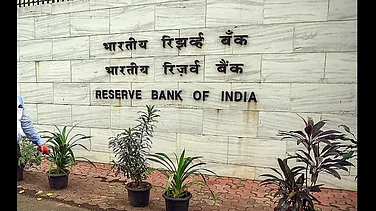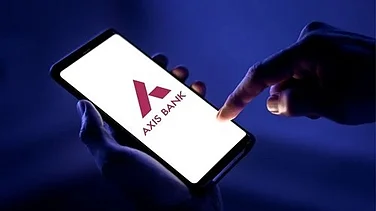Digital disruption has made our lives much easier, so much so that ordering food or purchasing daily necessities are now possible just a click away through devices such as smartphones and laptops. The banking sector is no exception. These rapidly evolving advancements in the digital space have tremendously transformed the banking and financial sector in India. Be it transferring funds, paying bills or applying for a personal loan, digitisation is enabling customers to do so in a more efficient manner. Number of users opting for Internet banking is expected to double by 2020, making India an important hub for financial innovation.
However, while Internet banking is definitely very useful, it does come with its set of limitations. If not done with utmost precaution, it can turn out to be risky. Although banks and financial institutions are introducing innovative measures to protect its customers from banking frauds and other cyber-related crimes, sometimes its our very own negligence regarding online banking that makes us fall prey to such thefts. Whilst, both the banks and financial institutions are doing their job to ensure complete protection to customers, we too should adopt a cautious attitude to protect ourselves.
So, to help you out in this process here is a gathered list of seven tips for safe Internet banking:
1. Change your password regularly
This might sound like a tedious task to many, but changing passwords at regular intervals is the best way to protect yourself from online banking fraud. And needless to say, do not share your one time password (OTP) with anyone. Stay away from any message or email asking for your password as banks or financial institutions will never ask for any personal information via phone, message or email.
Whenever you are changing your password always makes sure to choose strong characters and avoid using popular phrases. If you are one such user who tends to forget your passwords easily and have written passwords on a book or a diary, then make sure it is not easily accessible.
2. Avoid using public Wi-Fi
A public VPN is a very useful facility provided by many service providers free of cost at public places such as theatres and shopping malls. But sometimes this facility can become the reason behind an information leak. It is very easy for someone to trace all your data while you are on a public Wi-Fi. Hackers perceive an unsecured server as an opportunity to install malware on your device, which can later extract all your personal information.
The best way to tackle this problem is to use a Virtual Private Network (VPN). It is a set-up that can help create a safe and encrypted network while on a public Wi-Fi. While on a VPN network, the hacker will not be able to trace your IP address, thus, protecting your personal information.
3. Do not share your login details with anyone
This is a no-brainer; avoid sharing your personal login details with anyone. Whether it is your relative or a close friend or anyone for that matter, sharing your details like login identification number or OTPs can land you in an unwanted situation that you might regret later. Banks or financial institutions will never ask you to fill-in details over phone or email. If you receive an email or message from your respective bank asking to fill in your personal details, immediately crosscheck as someone might be phishing you.
Also, keep in mind to never login with your credentials through a suspicious link. Always use an authentic web link or URL.
4. Use genuine antivirus software
There are several types of viruses that a hacker can install with their target prospects without them ever knowing about it. Viruses such as Trojan gets installed when you surf through an unknown website or install something from it and later used to extract your personal information. Once a Trojan is installed on your device, it becomes very difficult to remove it from the device. Thus, it is always advisable to install authentic software for protection against such viruses. In addition, you will also get notifications if someone is trying to look past your information.
5. Go for a two-factor authentication
A two-factor authentication, provided by most banks and financial institutions these days is the best way to protect your personal information without going through much hassle. Two-factor authentication provides an additional layer of security. And makes it difficult for an attacker to enter into a foreign computer. It will immediately notify you when someone tries to login with your credentials.
6. Avoid signing in to your Internet banking accounts through random mails
What if one fine day you receive a sudden mail asking you to sign in to your net banking account through a follow-up link? You might think of it as an authentic one; after all it looks like your personal banker has sent you. But hold on before clicking on that link because it might not be an authentic one and it could be someone who’s phishing you. Such types of links might look original but they are not and one should never login as the hackers will have access to the personal details and passwords.
It’s always safer to access the original URLs for any financial transaction than to trust an anonymous server.
7. Check your accounts at regular intervals
Keep checking your accounts at regular intervals for a safer Internet banking experience. If you find something fishy happening, then immediately change your password or contact your respective bank. It’s imperative to monitor each and every transaction made through your account.
By following these few tricks you can protect yourself from frauds or any other thefts. Technology is rapidly evolving and so are the threats associated with it. It is time for you to become cautious in the process, and ensure safe Internet banking.
The author is Founder and CEO, IndiaLends.com




























